“Temple Words”: Brendan Constantine on Being a Poet in Public
Brendan Constantine, September’s Writer in Residence, was born in 1967 and named after Irish playwright Brendan Behan. An ardent supporter of Southern California’s poetry communities, he is one of the region’s most recognized authors. He is currently poet-in-residence at the Windward School and regularly conducts workshops in hospitals, foster homes, and with the Art of Elysium. His latest collections of poetry are Birthday Girl With Possum (2011 Write Bloody Publishing) and Calamity Joe (2012 Red Hen Press). He lives in Hollywood, California, at Bela Lugosi’s last address.
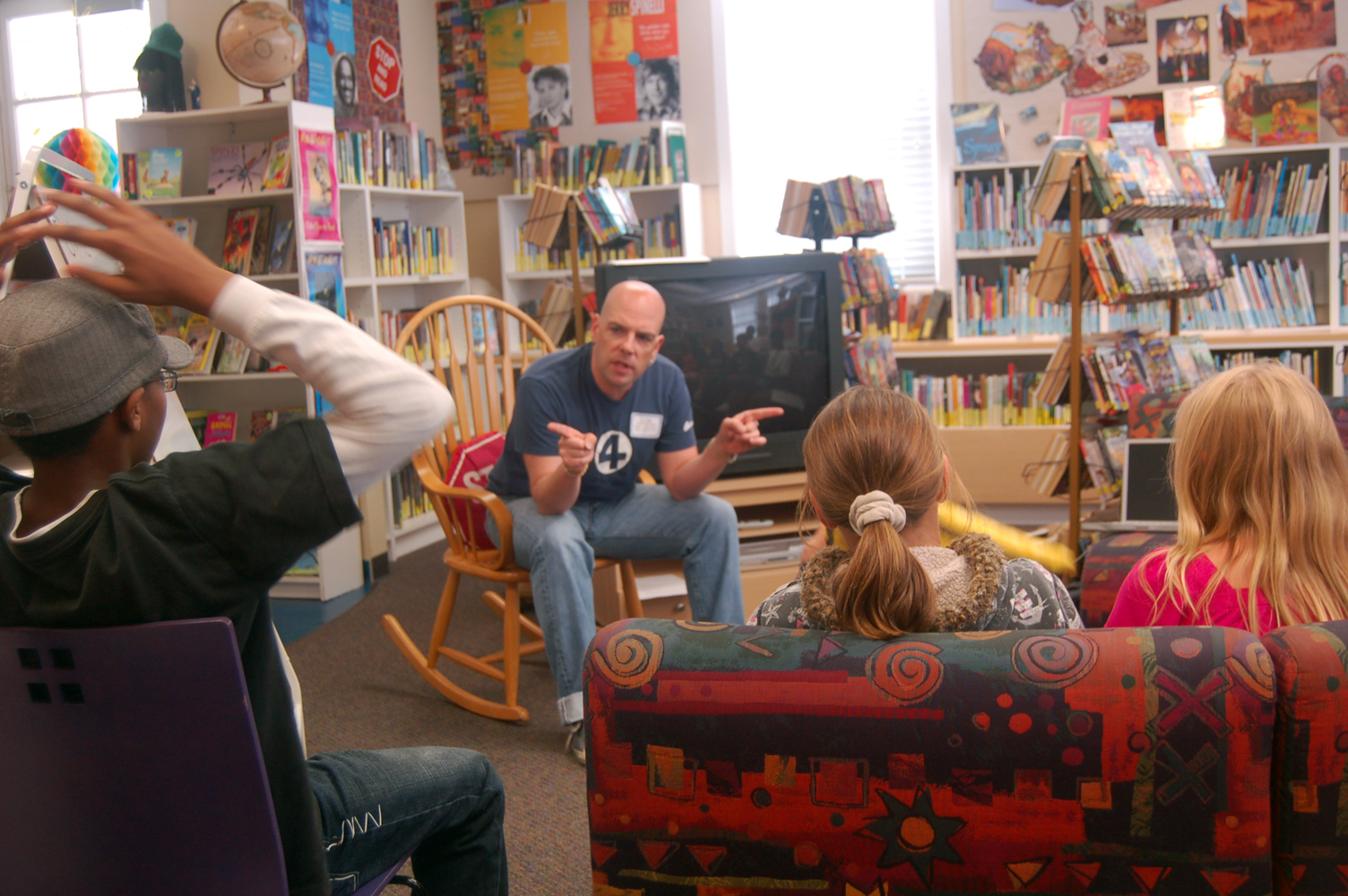 How do you do? Brendan Constantine here with my last blog as “writer in residence” for P&W. Thanks for visiting with me today.
How do you do? Brendan Constantine here with my last blog as “writer in residence” for P&W. Thanks for visiting with me today.
A while ago, I came across this comment in response to an L.A. Daily News article about efforts to appoint L.A.’s first poet laureate: “The economy is in shambles, people are looking for work and the city wants to hire a poet? This is the most absurd thing I have ever heard of! I am so glad that I moved away from Los Angeles!”
Wow. How do we begin to respond to that? How does a poet help a city? Isn’t it a waste of time and resources when people are desperate? Why do we need poets at all?
Those are worthy topics. But in the days since the story appeared I’ve noticed something else. Many of the poets I know have, or have had, reservations about identifying as such. Some of them seem to have internalized the prejudice displayed in the opening quote. More about that in a moment.
First, let’s face it, the term “poet” is pretty laden (indeed, even “leaden”) with associations. Even after I’d begun to write poetry in earnest, I shrunk from using the title. It sounded like bragging, or worse, likening myself to the most extreme stereotypes of self-absorption. To call myself a poet was like telling people I made a career of being tragically misunderstood.
Yesterday I had lunch with poet Mindy Nettifee. Like all the poets mentioned in this post, she’s received grants from the Readings/Workshops program to present her work—meaning that, on some level, she’s publicly owned the title of “poet.” But when I asked her if she’d ever had reservations about it, she said, “Are you kidding? I still sometimes feel like I’ve just told people I’m a really famous mime in Texas.” I laughed out loud for five minutes.
Today I started calling poets I knew and asked the same question. I caught poet Kim Addonizio in an airport—come to think of it, I never asked where she was going, oh well—and she said that for her, the title of poet was something that had to be deserved. Writing one poem wasn’t enough. Writing two or three was still tourism. “I had to earn my stripes,” she said.
But there’s no day that stands out as the one when she knew she’d crossed a line into the territory of legitimacy. She just noticed that she had been calling herself a poet.
“It’s a ridiculous thing to call yourself,” says poet Doug Kearney. “I mean, what does it actually say about what you do? A painter’s title contains a verb. So does ‘singer’ or ‘sculptor,’ ‘dancer,’ etc…. But a poet is a...what...a poem-er?”
Kearney does identify as a poet and began to do so around the time of his fellowship with Cave Canem, a renowned writer’s conservancy with a focus on African-American authors. At some point in his residency, being daily in the company of other poets who regarded him as one of them, he passed through an initiation. But again, he noticed only in retrospect.
So what’s the big deal already? Do you call yourself a poet? There’s no shame in it, is there? No licenses to practice, no tribe with the power to vote you off an island. Do you have associations with the term (or expect others will) that give it a bad light?
Poet Julianna McCarthy, who happens to be my mom, has been writing poetry for quite some time. She has a degree and body of published work. And yet, this evening, she said over the phone, “I still can’t do it. I have to change the syntax so that instead of saying I’m a poet, I say ‘I write poetry.’”
This isn’t going to end cleanly, by the way. I don’t have any answers and I’m not blaming poets for opinions like the one appearing at the top of this post. I will say that whatever it is about poetry that inspired such passionate criticism may be related to whatever it is that stops some of us from going public.
In my first post I said: “People invent poetry as a means of expressing something they can’t easily say. The desire to talk about special things in a special way, the desire to change, elaborate, or deliberately misuse language for the purpose of greater communion is all but universal.”
I wish to add that when I say “people” I don’t necessarily mean poets. Poetry predates the job of poet. In ancient Greece and Rome, the words for poetry refer to something “made,” a thing, even a formula. In Arabic cultures it can mean to “ask” or inquire. It may also mean to “perceive.” In China and later Japan, poems are “sacred words,” “temple words.”
Who needs temple words? Everyone outside the temple. Who needs to ask or perceive? Anyone who would answer, who would face another questioner. Who needs to make a thing out of words? Anyone unmade by speechlessness.
Photo: Brendan Constantine talks with young poets at Hillsides in Pasadena, California. Credit: Nicola Wilkens-Miller
Major support for Readings/Workshops in California is provided by The James Irvine Foundation. Additional support comes from the Friends of Poets & Writers.





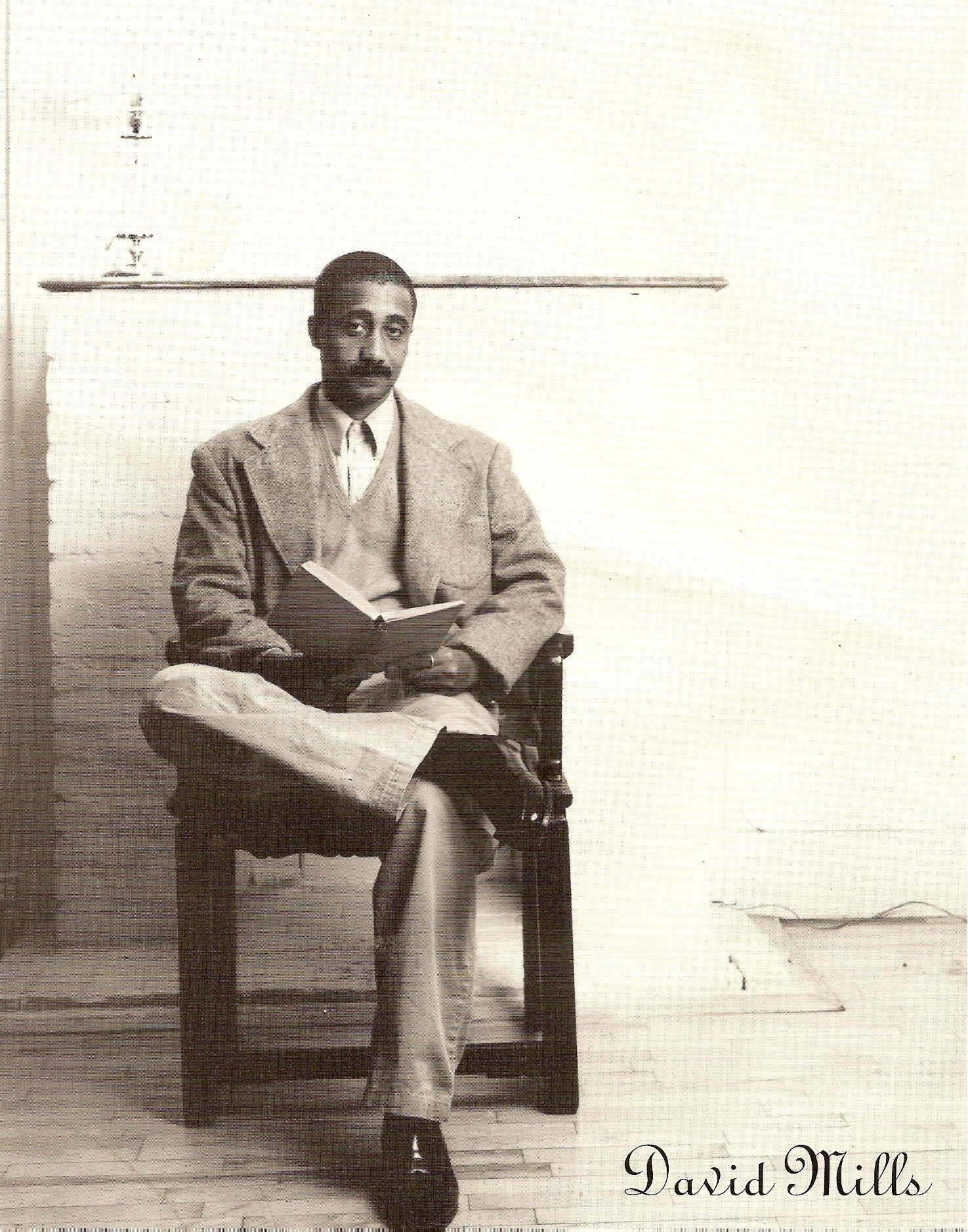 What is your writing critique philosophy?
What is your writing critique philosophy?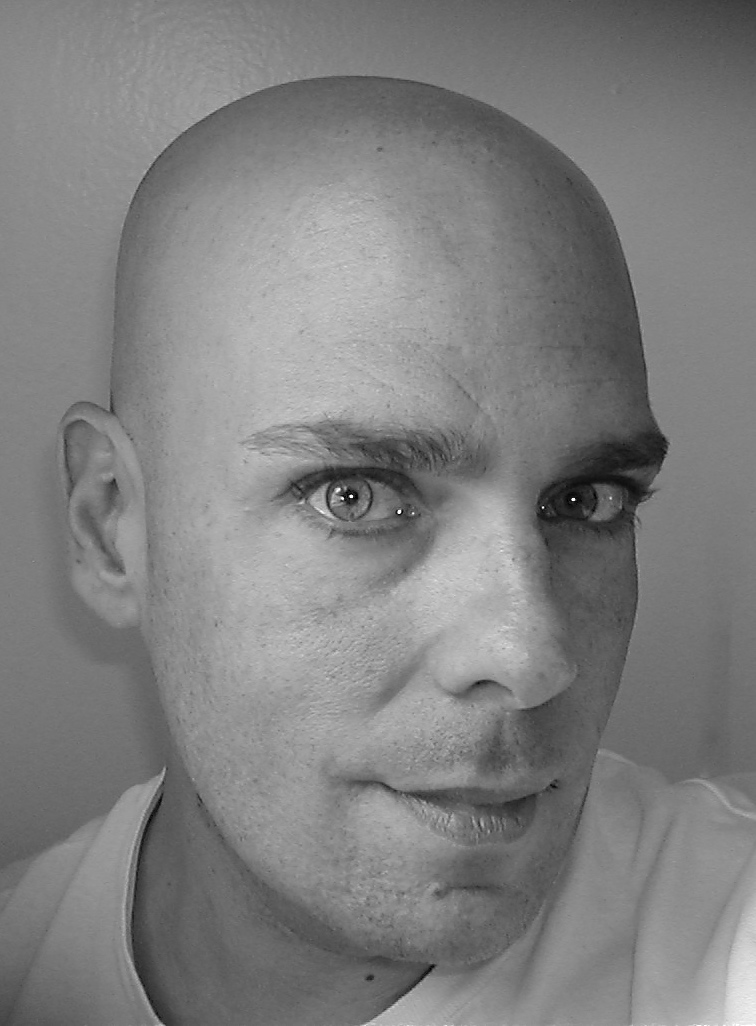 How do you do? Brendan Constantine here with the third “blog” of my residency with Poets & Writers. Thanks for joining me.
How do you do? Brendan Constantine here with the third “blog” of my residency with Poets & Writers. Thanks for joining me.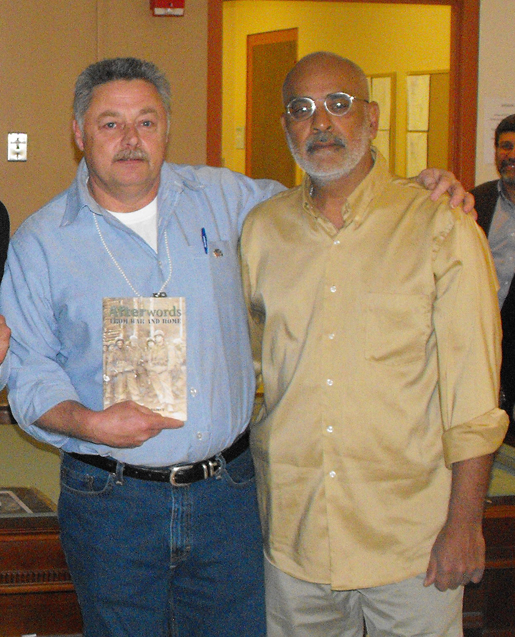
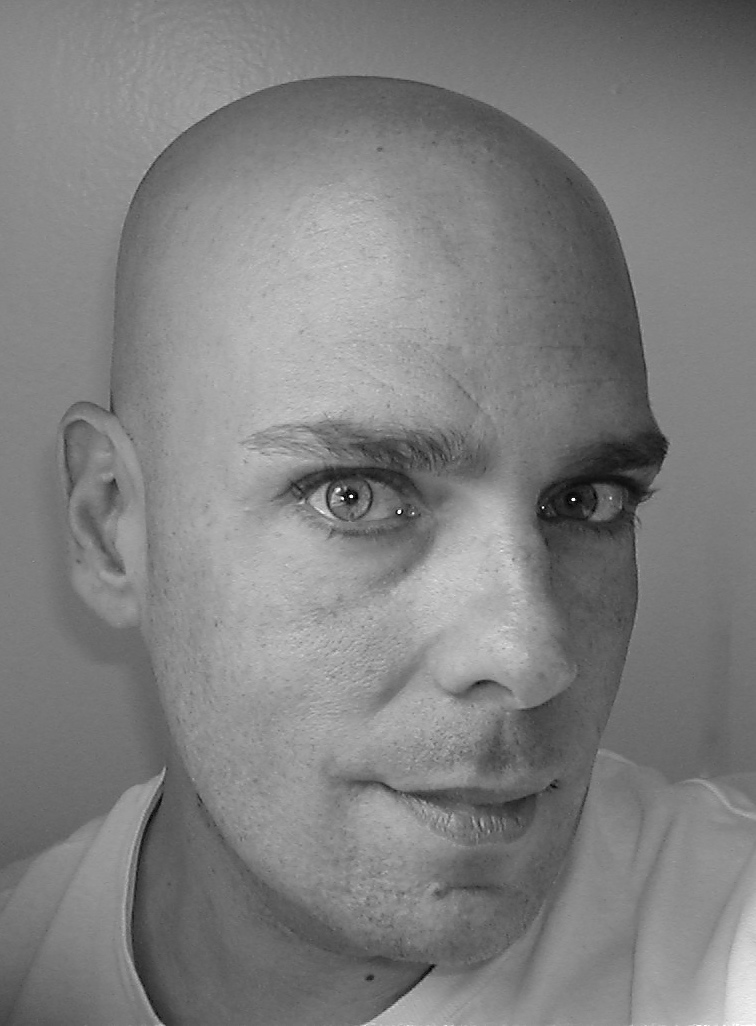 If only I could embrace the maxim I use in the classroom: Writer’s Block is almost never a deficit of magic but a surplus of judgment. I believe this, I do, but I'm still stuck. This is particularly ironic because what I want to talk about is Speechlessness; a speechless woman and a speechless universe. Maybe I can get this rolling if I work backwards and start with the universe.
If only I could embrace the maxim I use in the classroom: Writer’s Block is almost never a deficit of magic but a surplus of judgment. I believe this, I do, but I'm still stuck. This is particularly ironic because what I want to talk about is Speechlessness; a speechless woman and a speechless universe. Maybe I can get this rolling if I work backwards and start with the universe.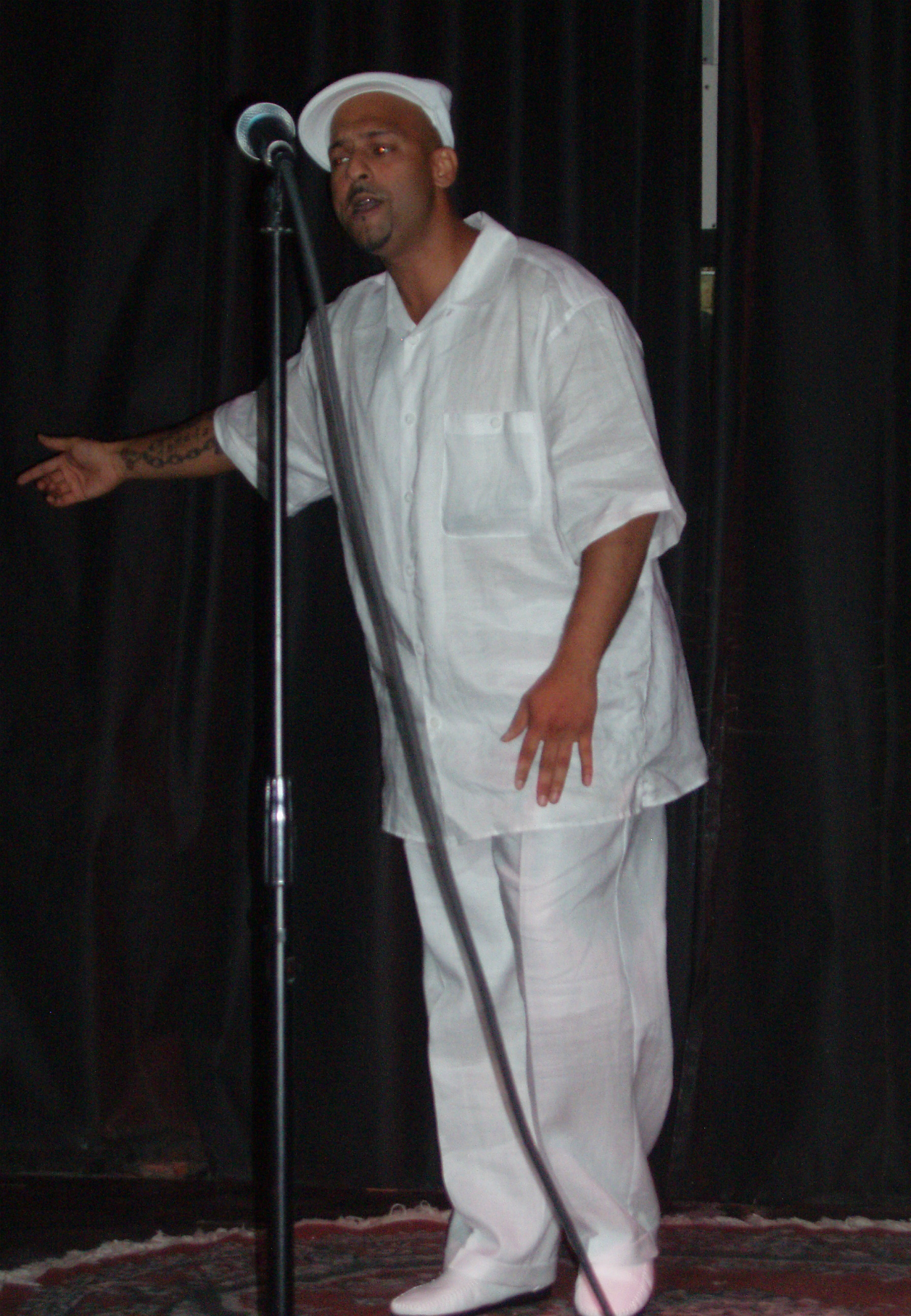 Dances With Wordz: Orisha Poetry, curated by Latinos NYC founder and CEO Raul K. Rios, featured performances celebrating the Yuroba faith of West Africa. The poets, garbed in white from head to toe, were an immaculate presence inside the
Dances With Wordz: Orisha Poetry, curated by Latinos NYC founder and CEO Raul K. Rios, featured performances celebrating the Yuroba faith of West Africa. The poets, garbed in white from head to toe, were an immaculate presence inside the 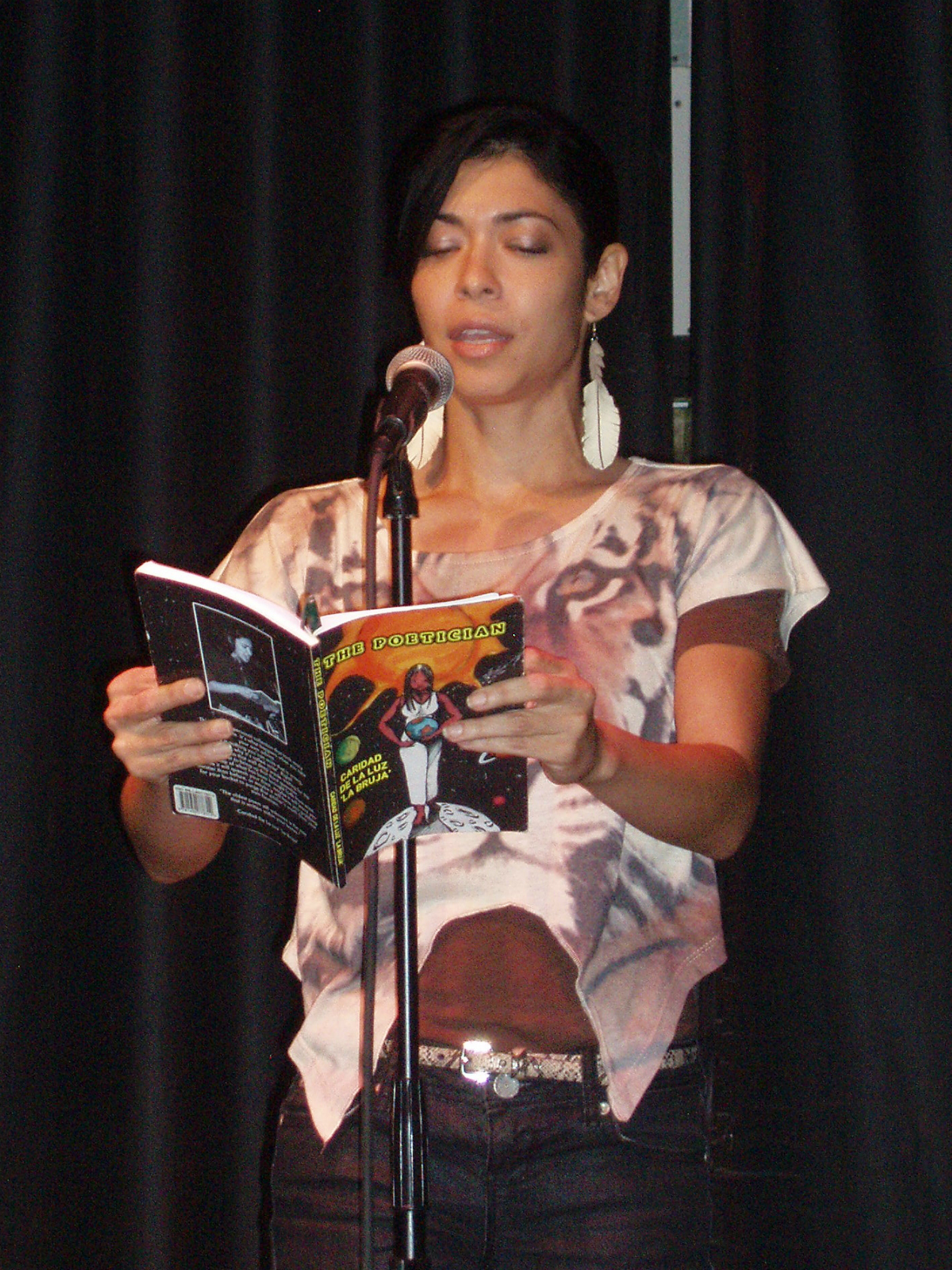 Nuyorican darling Caridad “La Bruja” De La Luz read from her first collection, The Poetician, then proceeded to rap and sing after reciting what she fondly called “straight up poetry.” Writer, actor, and painter Iya Ibo Mandingo performed last, conjuring images of home: luscious mangoes and coconuts. He ended his performance with a declarative poem, inciting reactions from the audience, which ranged from the gleeful to the guttural.
Nuyorican darling Caridad “La Bruja” De La Luz read from her first collection, The Poetician, then proceeded to rap and sing after reciting what she fondly called “straight up poetry.” Writer, actor, and painter Iya Ibo Mandingo performed last, conjuring images of home: luscious mangoes and coconuts. He ended his performance with a declarative poem, inciting reactions from the audience, which ranged from the gleeful to the guttural. 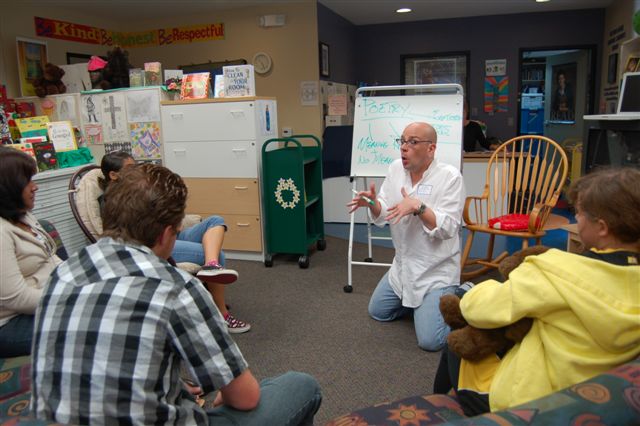 How do you do. My name is Brendan Constantine and I’m a poet living in Hollywood, California. As I write this, there are two people arguing in the street beyond my window. One of them just shouted, “It’s not religious, it’s my God damn parking space.”
How do you do. My name is Brendan Constantine and I’m a poet living in Hollywood, California. As I write this, there are two people arguing in the street beyond my window. One of them just shouted, “It’s not religious, it’s my God damn parking space.”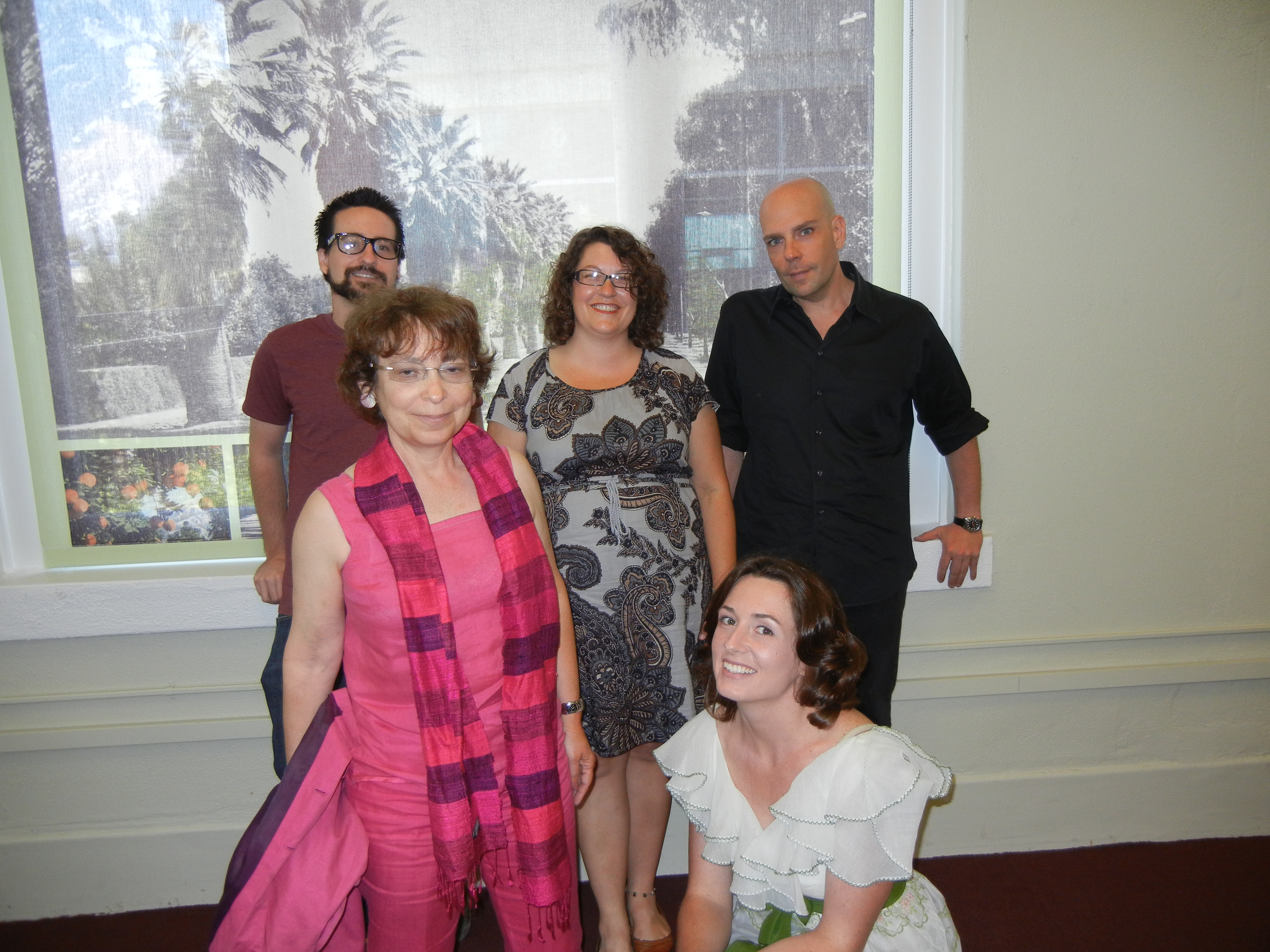 For a number of years now, I had been contemplating the fact that there is no regularly occurring literary reading series in Riverside, California. This is not to say that there aren’t the occasional events, including an annual
For a number of years now, I had been contemplating the fact that there is no regularly occurring literary reading series in Riverside, California. This is not to say that there aren’t the occasional events, including an annual  Then Nicelle Davis read; I say read, but really, “audience engagement” is a more accurate description of what occured. Drawn from her collection Circe, which retells The Odyssey, Davis used puppets and props to invite readers to pluck the heart out of Odysseus the Pig, and to gouge out Circe’s eyes and pluck a booger from her nose.
Then Nicelle Davis read; I say read, but really, “audience engagement” is a more accurate description of what occured. Drawn from her collection Circe, which retells The Odyssey, Davis used puppets and props to invite readers to pluck the heart out of Odysseus the Pig, and to gouge out Circe’s eyes and pluck a booger from her nose.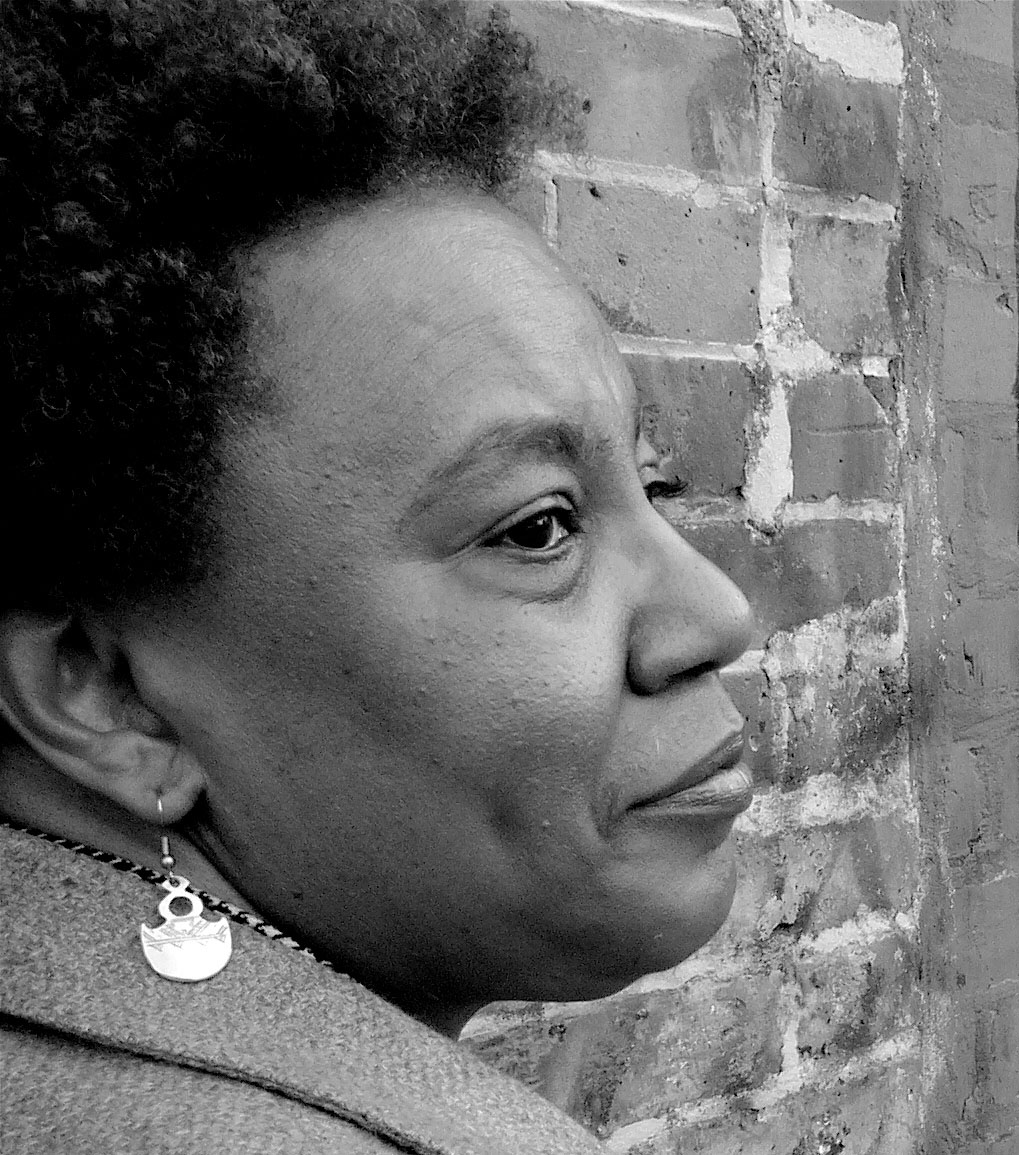 One of my writing mentors gave me this advice after I'd shared with her a story that I thought was quite clever. (It really wasn't
One of my writing mentors gave me this advice after I'd shared with her a story that I thought was quite clever. (It really wasn't